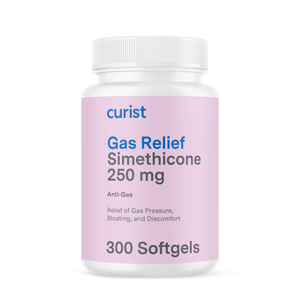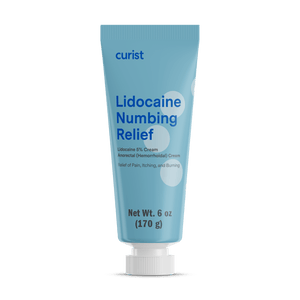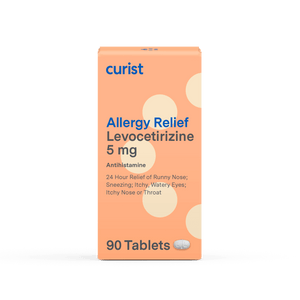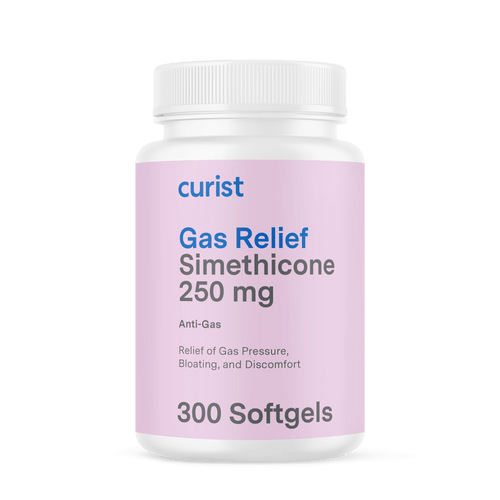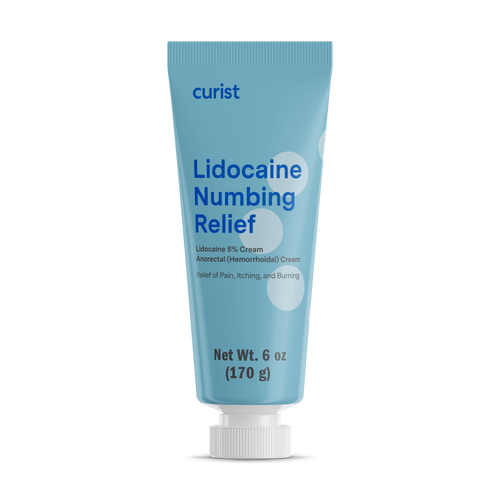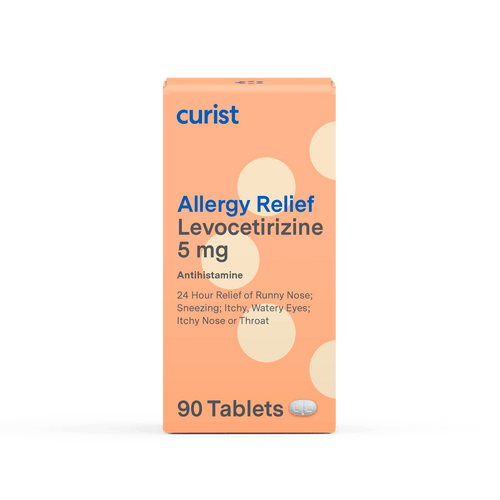Curist delivers over-the-counter medicines to your door at a fraction of the price of traditional brands. We hope everyone stays safe and healthy during this time.
If you feel bloated and gassy or have cramps and nausea within a few hours of drinking milk or eating milk products, you may be lactose intolerant. Lactose intolerance can develop as one ages, so know that you are not alone and that there are several ways to manage those uncomfortable symptoms. Continue reading to learn helpful tips on managing your lactose intolerance!
What is Lactose Intolerance?
Lactose is a sugar in our milk and dairy products and is usually broken down by an enzyme called lactase. However, if your body does not make enough lactase, it can be hard to digest and absorb the nutrients from the lactose in milk and dairy products, thus leading to lactose intolerance. Without proper amounts of lactase in the body, lactose will be broken down by bacteria in your gut instead and cause uncomfortable symptoms like gas, cramps, nausea, bloating, diarrhea, and sometimes constipation within 30 minutes to 2 hours of having dairy products.
What is the Difference Between Lactose Intolerance vs Milk Allergies?
It is important to note that lactose intolerance is not the same thing as having an allergy to milk. If you are allergic to milk, you may experience more severe symptoms after eating or drinking dairy products such as skin rashes, tingling around the mouth and lips, difficulty breathing, vomiting, or fever. If you experience any of these symptoms, seek medical attention right away.
What Causes Lactose Intolerance?
As babies, we all need a lot of lactase enzymes to absorb nutrients from milk. That is because milk is mostly made of lactose, a sugar that can be broken down by lactase and absorbed into the body for energy. As we get older, our lactate levels can start to decline as we start eating other foods to absorb nutrients. Some people who are lactose intolerant can still consume small amounts of milk or dairy products and not feel ill, while others find their symptoms wax and wane from time to time and from food to food.
How Do I Know if I am Lactose Intolerant?
Lactose intolerance is fairly common, affecting almost 70% of people around the world. It usually develops during adulthood as a normal part of growing up and getting nutrients from food and drinks other than milk. Sometimes, it can be hard to tell the difference between lactose intolerance and other diseases like celiac or inflammatory bowel disease, but if you notice more alarming symptoms such as severe abdominal pain or blood in your stool, seek medical attention immediately.
Is There a Lactose Intolerance Test?
A simple way to test whether you are lactose intolerant is to completely remove milk and milk products from your diet and monitor how you feel in the following weeks using a journal. If you still have symptoms such as diarrhea, nausea, gas, bloating or cramps on a milk-free diet, you know that the cause is not dairy or lactose. If your symptoms go away without dairy products, then this test can show that you are lactose intolerant. If you are still unsure whether or not you are lactose intolerant, talk to your doctor or pharmacist. In a doctor’s office, they can either measure the amounts of hydrogen in your breath or glucose in your blood after drinking a liquid with a high amount of lactose to confirm your lactose intolerance. For babies and children, stool tests can be used to determine lactose intolerance as well.
Can I Become Lactose Intolerant Over Time?
It is fairly common to develop lactose intolerance during adulthood. And if your parents are lactose intolerant, you may be at a higher risk of developing it. Another factor that may influence whether or not you develop lactose intolerance is your ethnic background. People of East Asian descent are likely to develop lactose intolerance as well as people of Jewish, Greek, Italian, Arab, or West African descent. It is quite rare for babies to be lactose intolerant since they depend on milk for all their nutrients. If you suspect you or a loved one is lactose intolerant you can ask your doctor to check using a hydrogen breath test or lactose intolerance test.
How Do I Manage Lactose Intolerance?
You cannot prevent or cure lactose intolerance, but there are several ways to manage your symptoms of lactose intolerance so that you can still enjoy the milk or dairy products that you love!
- Add small amounts of dairy to your diet over time to see how your body reacts
- Eat dairy products with other foods for example, milk with cereal
- Try foods with less lactose such as hard cheeses (cheddar, swiss, parmesan) or cultured milk products such as yogurt
- Drink lactose reduced, lactose free milk, or use a dairy milk alternative such as almond, soy, or flaxseed in your coffee or with your cereal
- Check the nutrition label for dairy products listed in their ingredients
- Using OTC dietary supplements such as Lactaid with your first bite of dairy products to help your body break down lactose from milk products and prevent symptoms
If you are lactose intolerant and can’t consume any milk or milk products, it is important to talk to your doctor and pharmacist about whether or not you should take calcium and vitamin D supplements to avoid developing deficiencies.
Can I be Lactose Intolerant to Milk But Not Other Dairy Products, like Cheese? Can I Be Lactose Intolerant to Just Cheese?
It is possible that only milk really triggers your symptoms of lactose intolerance, while other dairy products like cheese or greek yogurt do not. Hard, dry aged cheeses such as swiss, cheddar, and parmesan undergo a process called acidification that turns the lactose into lactic acid, so they contain very little lactose, whereas fresher cheeses with moisture may have more lactose. Greek yogurt is fermented and strained so it can often have less lactose as well. The best way to check if lactose is in a product is to check the nutrition label. At the end of the day, it is important to figure out what works for you and your body, so that you can avoid the foods that consistently give you uncomfortable symptoms and enjoy those that don’t bother you at all.




